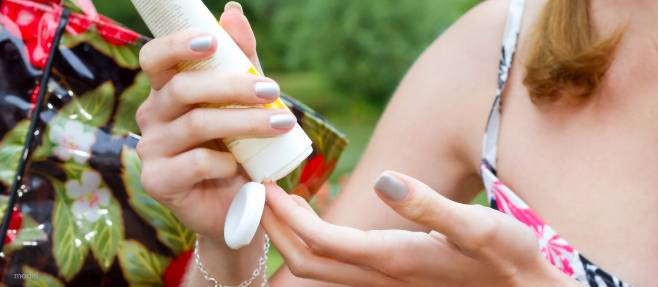7 Things You Need To Know About Sunscreen

Everyday your skin is exposed to dangerous ultraviolet (UV) rays just by stepping outside in the sun. The long term aggregation of UV exposure can result in many detrimental things like aging and skin cancer. An easy way to protect your skin from the ultraviolet A (UVA) and ultraviolet B (UVB) rays is with consistent and proper use of sunscreen.
When choosing and utilizing sunscreen here are some factors to consider:
1. Recent FDA regulations now require that all products marketed as sunscreens provide protection from both UVB and UVA radiation. This is a positive change for the consumer as products that did not protect against UVA exposure where marketed as “full protection” previously.
2. Studies have shown that the highest level of protection is provided when physical sunscreens (sunblock) are used alongside chemical sunscreens. Physical sunscreens protect the skin by blocking or deflecting UV rays while chemical sunscreens allow the skin to safely absorb the sun’s rays. Combining both types of protection results in double protection.
3. When choosing a sunscreen look for these active ingredients:
Physical Sunscreen
- Zinc oxide (ZnO)
- Titanium dioxide (TiO2)
Chemical Sunscreen
- Octylcrylene
- Avobenzone
- Octinoxate
- Octisalate
- Oxybenzone
- Homosalate
- Helioplex
- 4-MBC
- Mexoryl SX and XL
- Tinosorb S and M
- Uvinul T 150
- Uvinul A Plus
4. Focus on protecting yourself from both UVA and UVB rays. Both types of radiation can be harmful with UVA rays causing aging and UVB rays resulting in sunburns.
5. Always wear a high level of Sun Protection Factor (SPF). While 100% protection from UV Rays is impossible, the higher the SPF the more protected you are:
- SPF 15 protects against 92% of UVB Rays
- SPF 30 protects against 96.7% of UVB Rays
- SPF 50 protects against 98% of UVB Rays
6. An SPF greater than 50 is completely unnecessary and unfavorable. In fact the FDA recently proposed regulations allowing no more than an SPF of a 50+. Higher SPF’s can lead to skin irritation and sensitivity. As such the products claiming to be SPF 100 will be dropped from the domestic US market.
7. It is critical for your sunscreen product to contain antioxidants since sun exposure causes an abundance of detrimental free radicals to be released in your skin. Antioxidants like Vitamin A C, E, green tea, pomegranate extract, and coenzyme Q10, provided nourishment to counteract free radicals and keep your skin looking and feeling great.
Disclaimer: The contents of the Westlake Dermatology website, including text, graphics, and images, are for informational purposes only and are not intended to substitute for direct medical advice from your physician or other qualified professional.

Great post, very interesting. Learned a lot about sunscreen that I was unaware of!